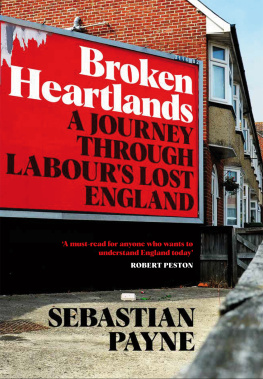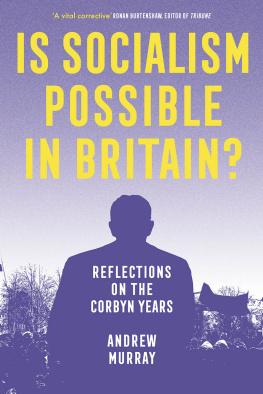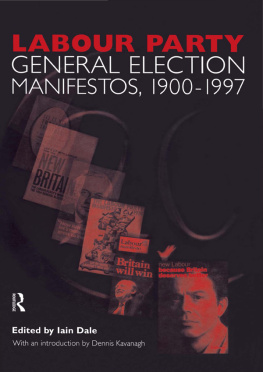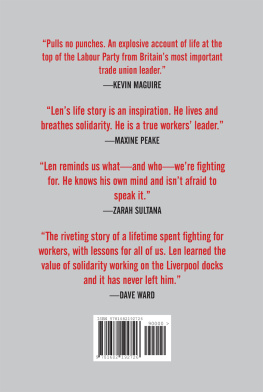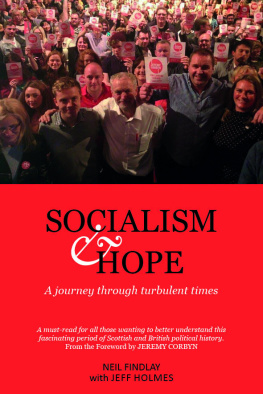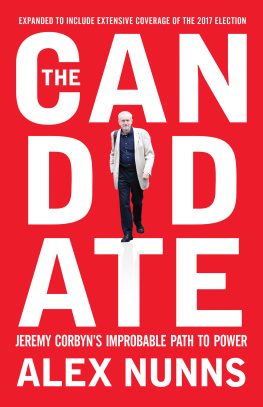Contents
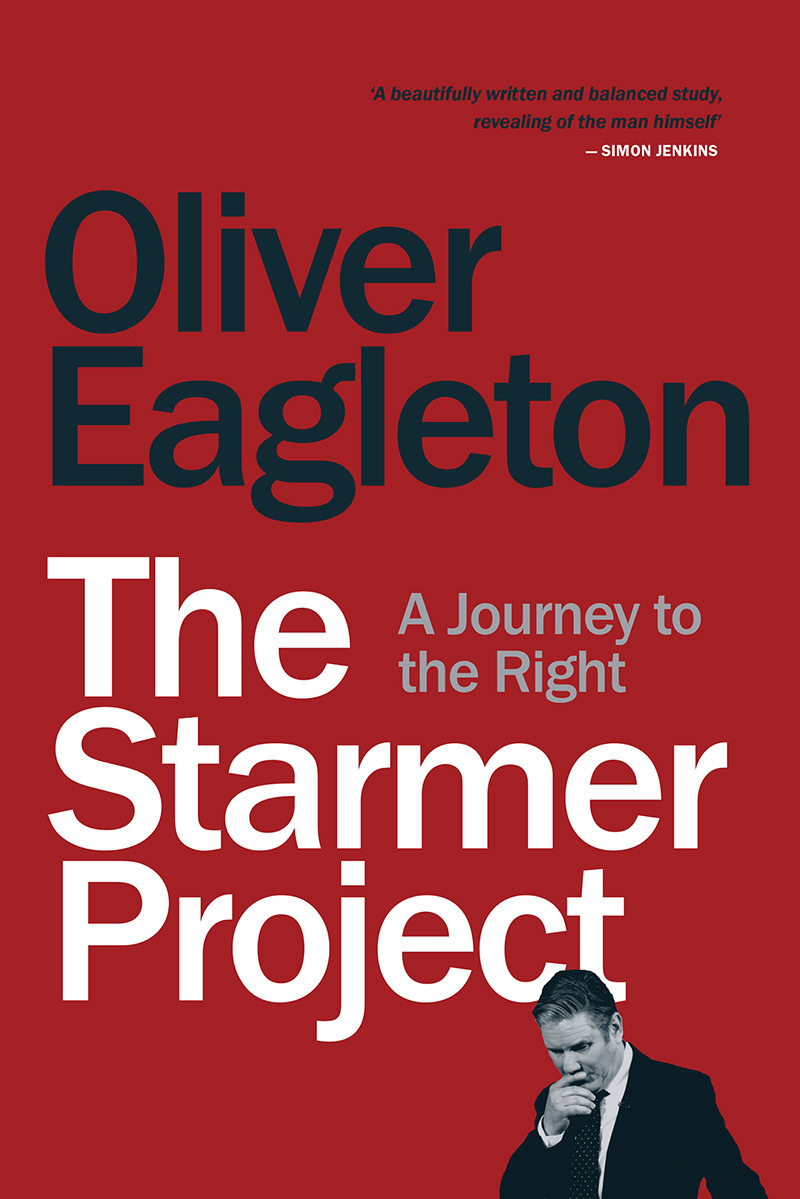
The Starmer Project
Oliver Eagleton is an editor at New Left Review . He writes on culture and politics for the Guardian , Times Literary Supplement and Novara Media .
The Starmer Project
A Journey to the Right
Oliver Eagleton

First published by Verso 2022
Oliver Eagleton 2022
All rights reserved
The moral rights of the author have been asserted
1 3 5 7 9 10 8 6 4 2
Verso
UK: 6 Meard Street, London W1F 0EG
US: 388 Atlantic Avenue, Brooklyn, NY 11217
versobooks.com
Verso is the imprint of New Left Books
ISBN-13: 978-1-83976-462-2
ISBN-13: 978-1-83976-464-6 (UK EBK)
ISBN-13: 978-1-83976-465-3 (US EBK)
British Library Cataloguing in Publication Data
A catalogue record for this book is available from the British Library
Library of Congress Cataloging-in-Publication Data
Names: Eagleton, Oliver, author.
Title: The Starmer project : a journey to the right / Oliver Eagleton.
Description: London ; New York : Verso Books, 2022. | Includes bibliographical references and index.
Identifiers: LCCN 2022002080 (print) | LCCN 2022002081 (ebook) | ISBN 9781839764622 (paperback) | ISBN 9781839764653 (ebk)
Subjects: LCSH: Starmer, Keir, 1962 | Labour Party (Great Britain) Biography. | Great Britain Politics and government 2007 | Politicians Great Britain Biography.
Classification: LCC DA591.S726 E34 2022 (print) | LCC DA591.S726 (ebook) | DDC 324.24107 dc23
LC record available at https://lccn.loc.gov/2022002080
LC ebook record available at https://lccn.loc.gov/2022002081
Typeset in Fournier by MJ & N Gavan, Truro, Cornwall
Printed and bound by CPI Group (UK) Ltd, Croydon CR0 4YY
Contents
Keir Starmers election as leader of the Labour Party was met with elation from almost every major media outlet. Writing in the Guardian , Polly Toynbee contrasted Starmer whom she described as a trusted, tried and tested, big-brained grown-up with the raw incompetence of his predecessor, who had sealed Labours fate in the 2019 election. Where there was no effective opposition, a void, a limbo, now in Keir Starmer the party has a grand prosecutor well qualified to hold the governments feet to the fire. She was echoed by her Observer colleague Andrew Rawnsley, who wrote that serious times call for serious people, and predicted Starmers sober style would make him untouchable for the Tories.
Starmers most favourable quality, as far as these journalists were concerned, was not being Jeremy Corbyn. But he had other selling points as well. Minor embellishment could give his backstory a rags-to-riches gloss: from son of a toolmaker to Britains most senior prosecutor, overseeing thousands of staff at the Crown Prosecution Service. He was an authority on European human rights law, a high-profile defender of civil liberties, a tireless campaigner against the death penalty, and, eventually, a frontbench politician, leading the parliamentary battle against Brexit. Starmers impressive CV will have the Tories running scared, wrote one commentator. He represented the perfect balance of opposites: working-class credentials and establishment credibility; political principle and pragmatic compromise; distance from Westminster and insider knowledge of the state. Starmer was neither a New Labour heirloom nor a continuity Corbynite, but a man with no enemies who could end the partys factional war. The pre-eminent sensible radical, in the words of Times reporter Patrick Maguire.
Positive perceptions of Starmer radiated from the press to the general public. Two months in, he ranked as the most popular opposition leader since Tony Blair, with a
Once the vaccine rollout eased the governments pandemic problems, however, Starmer receded from the spotlight, and the public were left with little sense of his principles or policies. By mid-2021 the honeymoon was over. He consistently trailed the Tories sometimes by 15 per cent margins and his popularity sank below that of Corbyn. Starmers cross-examinations at prime ministers questions grew less confident. Internal polls showed that millions of key voters barely noticed his interventions.
Why had the sheen worn off so quickly? Starmer blamed lockdown, noting that he had not yet had the chance to shake peoples hands or speak in front of a live audience. As restrictions began to lift, he told the press he was looking forward to taking the mask off and opening the throttle. His party narrowly held the West Yorkshire seat of Batley and Spen on 1 July, granting the leader a reprieve. Yet a summer tour of Britain drew a muted response from voters, with some panellists advising Starmer that he was wasting his time.
In step with this decline, previously sympathetic publications became sceptical. The Guardian leader writers warned that Sir Keir urgently needs to clarify what his party is about. Rafael Behr, who had once hailed Starmers victory as a huge advance for the opposition, now enjoined him to express himself with something approximating originality and colour. The Economist criticized his failure to produce a vision of the future, asking, What happens if, for all his positive qualities of decency and determination, he just doesnt have what it takes? In the NewStatesman , Stephen Bush observed that a consensus is forming among the commentariat that Keir Starmer is not up to the job. Disillusioned staffers rounded on their former boss, asserting that he desperately needs to stand for something.
But then came a second sharp reversal of fortune, as Starmer was lifted by a favourable tide of Tory corruption scandals culminating in the revelation that Johnson had But polling gains, however fragile, will ensure Starmer survives to fight the general election as Labour leader, and a Starmer government cant be ruled out.
This underscores the importance of examining his political programme. Starmer has not presented a unified, consistent ideology, hence the confusion over what he stands for. But he does have a project a vision, of sorts and a coherent strategy to achieve it, which is yet to be analysed in detail. Indeed, it is an indication of how little remains known about Starmers outlook that his actions are usually interpreted as overtures to others, from Blairite advisers to wavering Red Wall voters to Labour Friends of Israel. To anatomize his leadership, it is not enough to cast him as an empty vessel for these influences. We must rather uncover the more durable aspects of his thought-world and assess their relevance to the present conjuncture.
Of course, Labours troubles stretch back further than Sir Keir. Its total seat share has been cut in half over the past two decades: a rot that set in almost immediately after Blairs 1997 victory, with Labours popular vote plummeting in successive elections amid a collapse in overall turnout. In 2005, it polled at only 35 per cent: the lowest recorded level for any winning party. New Labours financialized economic model unravelled during the banking crisis three years later; yet neither Gordon Brown nor Ed Miliband was willing to break with it driving scores of voters to UKIP and the Tories. The social democratic renovation of the Corbyn period returned the best election result in recent memory, but by 2019 its momentum had been destroyed by Brexit, and the party faced an uphill battle to regain its relevance.



